Gardening in Forest Hill: Your Complete Guide to a Thriving Garden
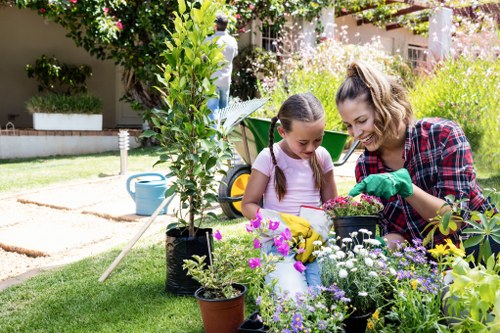
Gardening in Forest Hill offers a unique opportunity to cultivate a vibrant and sustainable outdoor space. Whether you are a seasoned gardener or a beginner, Forest Hill's climate and soil conditions provide the perfect backdrop for a variety of plants and flowers.
Understanding the local environment is key to successful gardening. Forest Hill experiences a temperate climate with distinct seasons, which influences the types of plants that thrive here. From perennials to annuals, choosing the right plants can make all the difference.
Soil quality is another critical factor. Forest Hill's soil varies, but generally, it is fertile and well-draining, ideal for most gardening activities. Conducting a soil test can help determine the best amendments to enhance your garden's productivity.
Choosing the Right Plants for Forest Hill
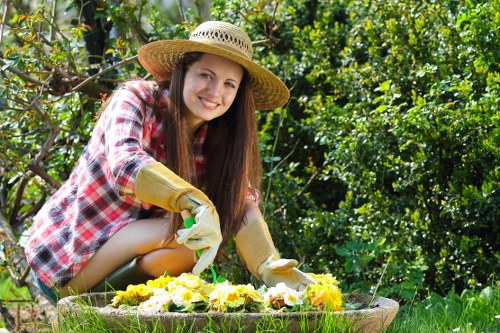
Selecting plants that are well-suited to Forest Hill's climate ensures a healthier and more resilient garden. Native plants are an excellent choice as they are adapted to the local conditions and require less maintenance.
Consider a mix of **perennials** and **annuals** to provide both long-term structure and seasonal color. Perennials like lavender and daylilies can offer year-round beauty, while annuals such as petunias and marigolds add vibrant bursts of color throughout the growing season.
Herbs are also a popular choice for gardens in Forest Hill. Basil, thyme, and rosemary not only add flavor to your kitchen but also attract beneficial pollinators to your garden.
Seasonal Planting Guide
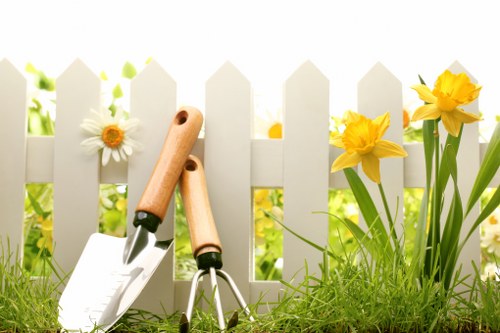
Planning your garden around the seasons can maximize growth and yield. In the spring, focus on planting vegetables like tomatoes and peppers, as well as flowers that thrive in cooler temperatures.
Summer is ideal for heat-loving plants such as sunflowers and zinnias. Ensure your garden receives adequate water during this time to keep plants healthy.
Autumn planting includes bulbs like tulips and daffodils, which will bloom beautifully in the spring. Fall is also a great time to prepare your garden for the winter months by adding mulch and compost.
Soil Preparation and Maintenance
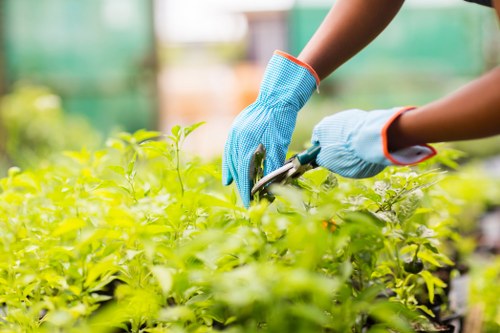
A well-prepared soil foundation is essential for a thriving garden in Forest Hill. Start by removing any weeds and debris from your garden beds.
Add organic matter such as compost or aged manure to improve soil structure and fertility. This not only provides essential nutrients but also enhances water retention and drainage.
Regular soil testing can help you monitor pH levels and nutrient content, allowing you to make informed decisions about fertilization and soil amendments.
Effective Watering Techniques
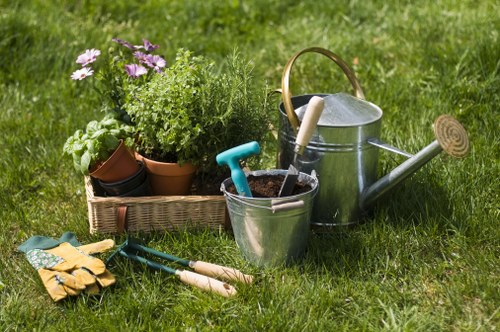
Watering is a crucial aspect of garden maintenance. In Forest Hill, it's best to water your plants early in the morning to reduce evaporation and fungal growth.
Using drip irrigation systems can be an efficient way to deliver water directly to the plant roots, minimizing waste and ensuring consistent moisture levels.
Mulching around plants helps retain soil moisture and regulate temperature, contributing to healthier plant growth and reduced water usage.
Pest and Disease Management

Protecting your garden from pests and diseases is vital for maintaining plant health. Regularly inspect your plants for signs of infestation or illness.
Utilize natural pest control methods such as introducing beneficial insects like ladybugs and praying mantises that prey on common garden pests.
Organic pesticides and fungicides can be effective in managing outbreaks without harming the environment or beneficial organisms.
Organic Gardening Practices

Embracing organic gardening practices not only benefits your plants but also the surrounding ecosystem. Avoid synthetic chemicals and opt for natural alternatives to promote a healthy garden environment.
Companion planting is an effective strategy where certain plants are grown together to enhance growth and deter pests. For example, planting marigolds alongside vegetables can repel harmful insects.
Composting kitchen scraps and garden waste recycles nutrients back into the soil, reducing the need for additional fertilizers.
Garden Design and Layout

A well-thought-out garden design enhances both functionality and aesthetic appeal. Consider the layout that best suits your space and gardening goals in Forest Hill.
Incorporate pathways to navigate through your garden easily, and use raised beds to organize different plant sections. This not only improves accessibility but also helps in managing soil quality.
Adding decorative elements such as trellises, benches, and garden art can personalize your garden and make it a welcoming retreat.
Choosing the Right Tools

Having the right gardening tools is essential for efficient maintenance. Invest in quality tools such as spades, rakes, and pruners to make your gardening tasks easier.
Ergonomic tools can reduce strain and improve comfort, allowing you to spend more time enjoying your garden.
Proper tool maintenance, including regular cleaning and sharpening, extends their lifespan and ensures they perform effectively.
Sustainable Gardening Practices

Sustainable gardening minimizes environmental impact and promotes long-term garden health. Implementing practices such as rainwater harvesting can reduce water usage and conserve resources.
Using native plants requires fewer resources, as they are naturally adapted to the local climate and soil conditions of Forest Hill.
Reducing chemical inputs and embracing organic methods fosters a balanced ecosystem that supports biodiversity.
Composting and Recycling

Composting is an excellent way to recycle organic waste and enrich your garden soil. Start a compost pile with kitchen scraps, leaves, and other biodegradable materials.
Regularly turning the compost ensures proper aeration and decomposition, resulting in nutrient-rich material for your garden.
Utilizing compost reduces the need for chemical fertilizers and enhances soil fertility naturally.
Maintaining Your Garden Throughout the Year

Year-round maintenance ensures your Garden in Forest Hill remains healthy and attractive. Seasonal tasks vary, but consistent care is essential.
In spring, focus on planting and preparing garden beds. Summer requires regular watering and pest management.
In autumn, clean up fallen leaves and prepare plants for winter. Winter care includes protecting sensitive plants from frost and planning for the next growing season.
Winter Gardening Tips

Winter gardening may seem challenging, but with the right strategies, you can keep your garden thriving. Select cold-hardy plants that can withstand frost and low temperatures.
Use protective coverings like mulch or burlap to shield plants from harsh winter conditions. This helps maintain soil temperature and moisture levels.
Indoor gardening is another option, allowing you to continue cultivating herbs and certain vegetables even during the colder months.
Gardening Communities and Resources in Forest Hill

Joining gardening communities can provide support and inspiration for your gardening endeavors in Forest Hill. Local clubs and online forums offer valuable insights and shared experiences.
Attending community workshops and events fosters knowledge exchange and helps you stay updated on the latest gardening trends and techniques.
Accessing local gardening resources, such as nurseries and extension services, ensures you have the necessary tools and information to succeed.
Educational Workshops and Classes

Participating in educational workshops and classes enhances your gardening skills and expands your plant knowledge. These opportunities often cover topics like organic gardening, pest management, and landscape design.
Local experts and experienced gardeners lead these sessions, providing practical advice tailored to Forest Hill's unique gardening conditions.
Continuous learning fosters a deeper connection with your garden and encourages sustainable practices.
Local Services and Support

Utilizing local gardening services can alleviate some of the workload and bring professional expertise to your garden. Services such as landscaping, maintenance, and consultation are readily available in Forest Hill.
Professional landscapers can help design and implement garden layouts that maximize space and aesthetic appeal. Maintenance services ensure your garden remains pristine throughout the year.
Consultants offer personalized advice, helping you navigate challenges and optimize your gardening practices for the best results.
Hiring Local Gardeners

Hiring local gardeners supports the community and ensures your garden care is handled by those familiar with Forest Hill's specific conditions. Local gardeners bring expertise in native plant species and climate-resilient practices.
They can provide tailored maintenance schedules, ensuring your garden receives the right care at the right time.
Engaging with local gardeners fosters community connections and promotes sustainable gardening practices.
10 Nearby Areas to Forest Hill for Gardening Services

- Griffin: Just 15 minutes away, Griffin offers a variety of nurseries and garden centers with extensive plant selections.
- McRae: Located 20 minutes south, McRae is known for its community gardens and gardening workshops.
- College Park: 25 minutes to the north, College Park provides specialized landscaping services and eco-friendly gardening solutions.
- Buford: 30 minutes east, Buford features beautiful botanical gardens and expert horticultural advice.
- Milledgeville: A 35-minute drive west, Milledgeville offers historical garden tours and vintage plant varieties.
- Albany: 40 minutes southwest, Albany is home to diverse plant nurseries and organic gardening suppliers.
- Auburn: Located 45 minutes northeast, Auburn provides innovative gardening technologies and irrigation services.
- Savannah: 50 minutes southeast, Savannah boasts scenic garden landscapes and professional landscape architects.
- Roswell: An hour away to the northwest, Roswell has extensive resources for urban gardening and balcony planting.
- Smyrna: 65 minutes south, Smyrna offers community-supported agriculture programs and gardening education.
Conclusion: Start Your Gardening Journey in Forest Hill Today

Gardening in Forest Hill is a rewarding pursuit that enhances your living space and connects you with nature. By selecting the right plants, preparing your soil, and maintaining your garden with sustainable practices, you can create a thriving outdoor oasis.
Take advantage of local resources and communities to support your gardening efforts and explore the numerous nearby areas offering specialized services.
Contact us today to begin your gardening journey and transform your Forest Hill garden into a beautiful and sustainable haven.
